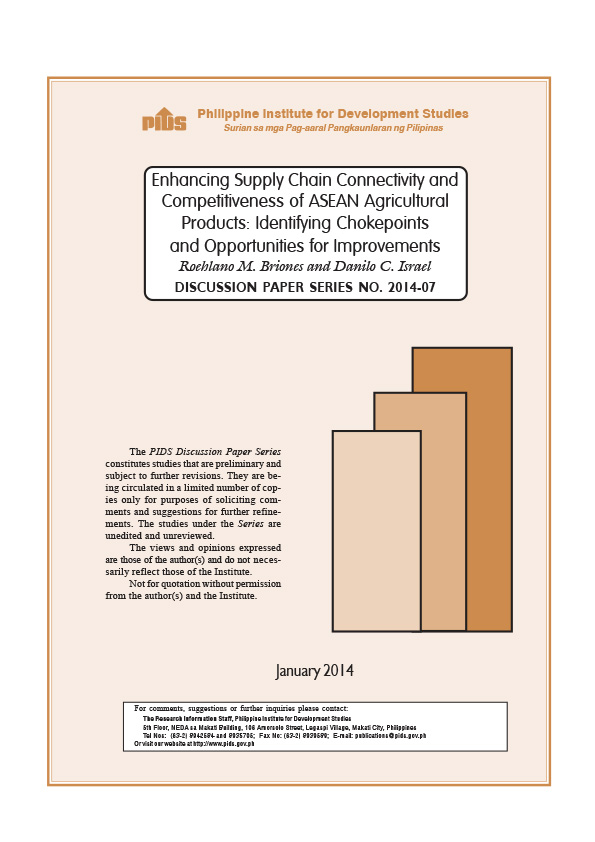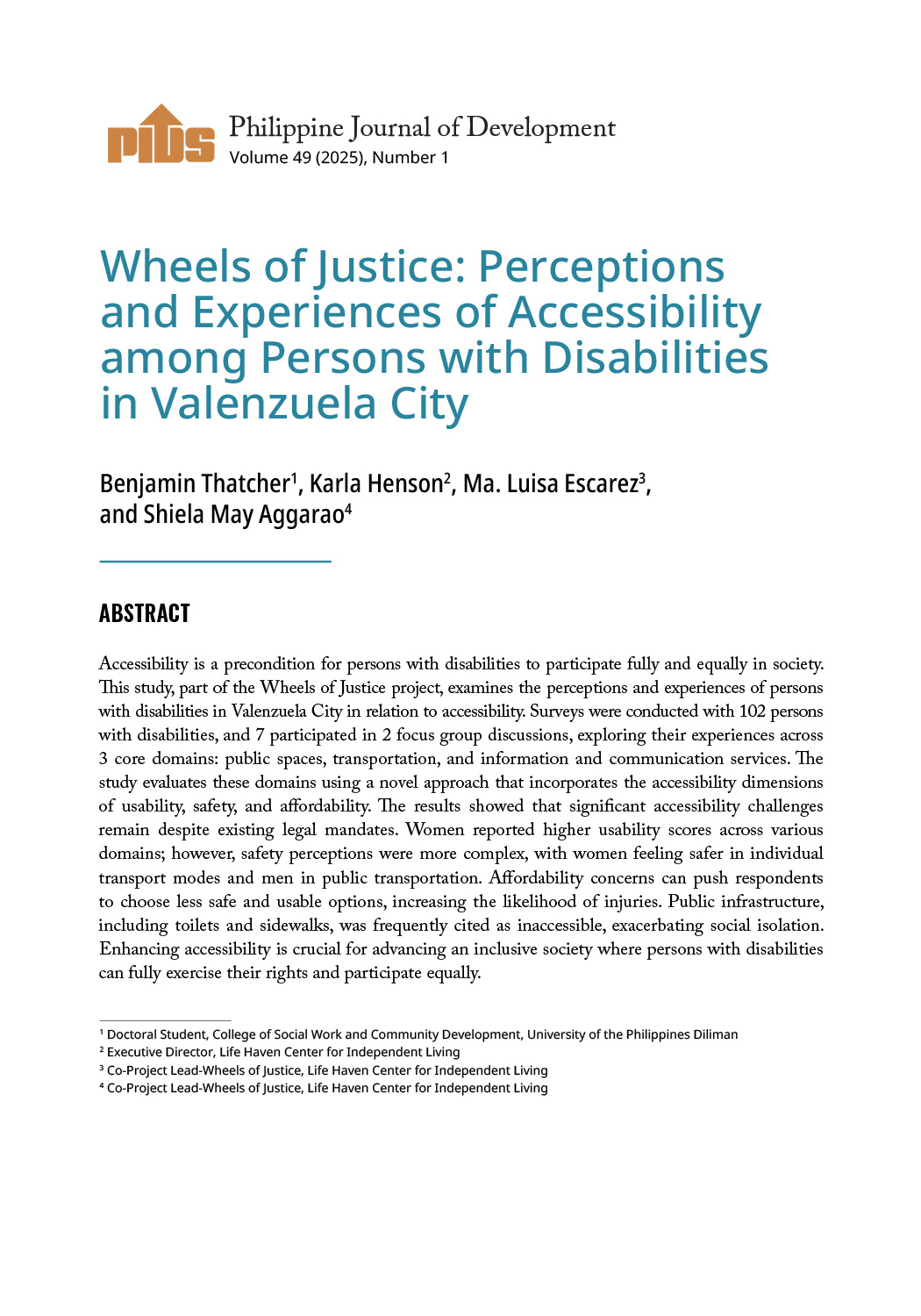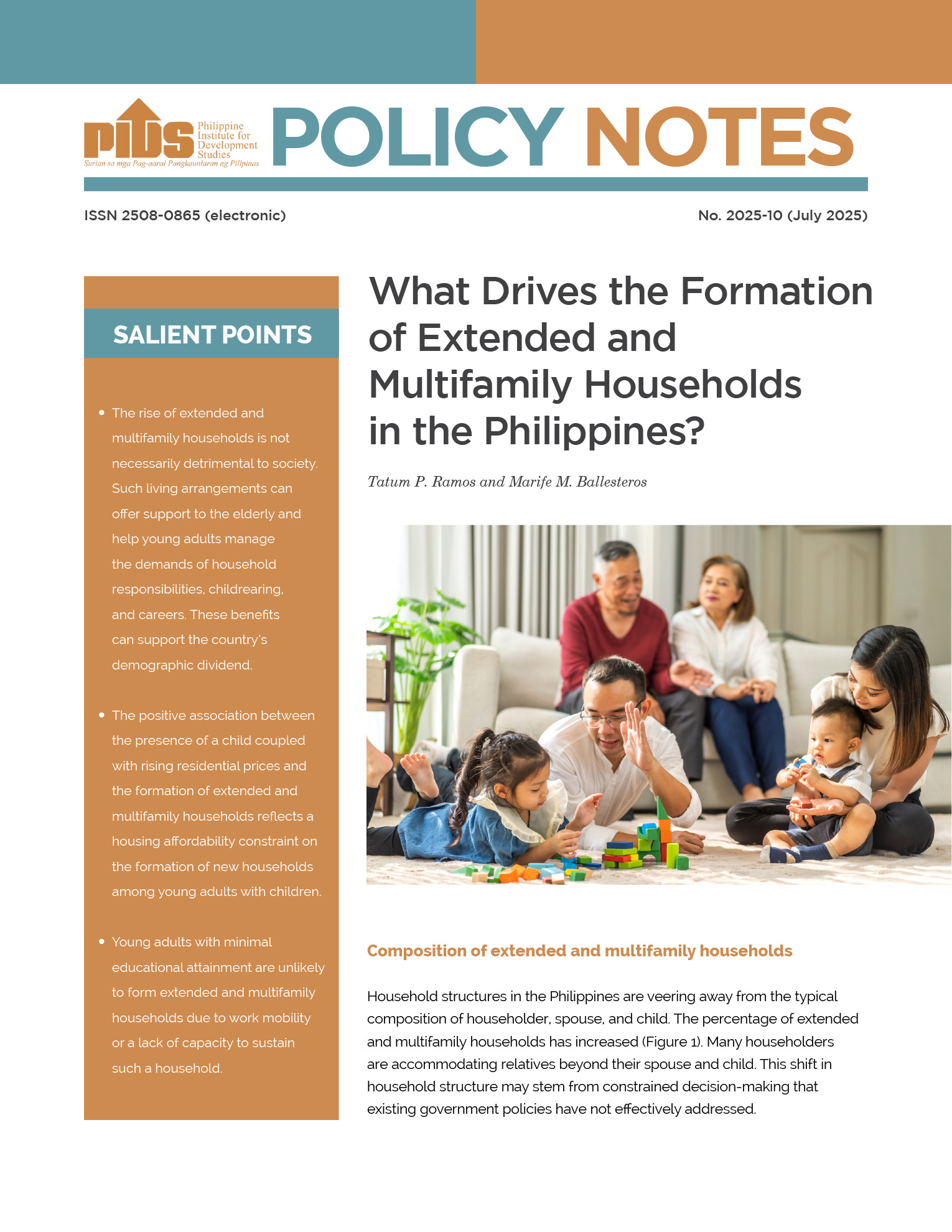This study examines "choke points" in the supply chain of two selected commodity groups that are of interest to the ASEAN region; within the HS15 group the study focuses on crude coconut oil (CNO); for HS03 the study covers fish and crustacean, mollusks, and other aquatic invertebrates (HS 03). For CNO, no major choke points have been identified from mill site to export stages; cost and delay factors can be found at the farm to mill stage, namely low farm productivity, poor postharvest practices (leading to low quality of copra), and inefficiencies in marketing to the mill. Meanwhile for fisheries, several choke points have been identified, namely: i) domestic road conditions (quality, vehicle capacity, quantity); ii) interisland shipping (high cost, inadequate service); iii) conditions in some ports (inadequate; a weak link in the cold chain); iv) compliance with SPS regulations; and v) certified laboratories (inadequate number). The study recommends specific types of road investments, competition policy in domestic shipping (both CNO and fisheries), industry restructuring in the case of coconut, and SPS measures in the case of fisheries.
Citations
This publication has been cited 1 time
- Patalinghug, Epictetus E.. 2015. Supply chain connectivity: Enhancing participation in the global supply chain. Discussion Papers DP 2015-14. Philippine Institute for Development Studies.













